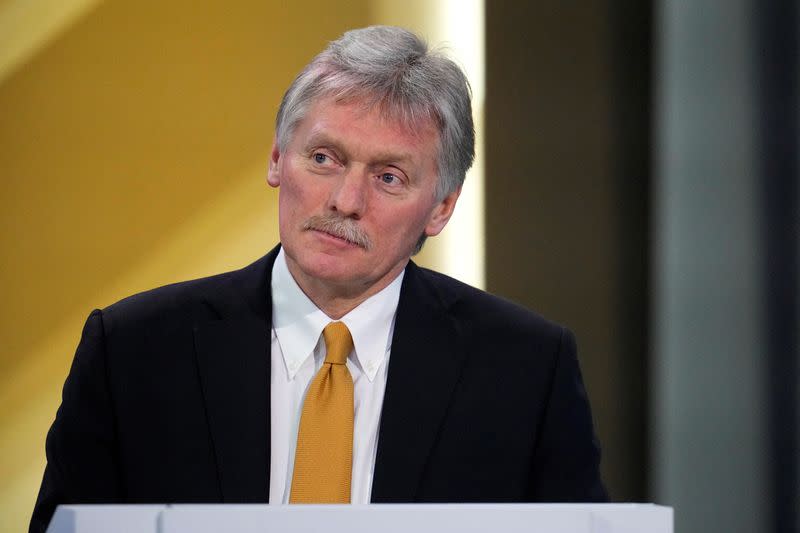Russia tells US: we need to talk, but Ukraine must be on agenda

- Oops!Something went wrong.Please try again later.
MOSCOW (Reuters) - Russia sees a pressing need for security talks with the United States but they must be "comprehensive" and include the subject of Ukraine, the Kremlin said on Friday.
"It is impossible to rip out any individual segments from the general complex of accumulated problems, and we will not do this," Kremlin spokesman Dmitry Peskov said when asked if Moscow was ready to talk to Washington about nuclear risks.
"So we are open to dialogue, but to a broad comprehensive dialogue that covers all dimensions, including the current dimension related to the conflict around Ukraine, related to the direct involvement of the USA in this conflict," Peskov told reporters.
The United States rejects Russia's contention that by arming Ukraine it has become a direct protagonist in a war aimed at inflicting a crushing "strategic defeat" on Moscow. The U.S. says any negotiations over the war are a matter for Ukraine.
The Russian stance, as outlined by Peskov, is not new. But he told reporters that the list of topics that Russia and the United States needed to discuss was growing.
"Overall, this dialogue is very much required," Peskov said. "It is needed because problems are piling up, and there are a lot of problems associated with the global security architecture."
From Washington's point of view, it is Putin who, in the third year of the war in Ukraine, is adding to the list of security concerns.
This week he visited nuclear-armed North Korea, signed a mutual defence agreement with its leader Kim Jong Un and said he might supply Russian weapons to North Korea in response to the Western arming of Ukraine.
Putin also reiterated on Thursday that he was considering reviewing Russia's doctrine on the use of nuclear weapons. The last remaining arms control treaty that limits the number of strategic nuclear warheads that Russia and the United States can deploy is due to expire in 2026.
(Reporting by Gleb Stolyarov; writing by Mark Trevelyan; Editing by Andrew Osborn)

